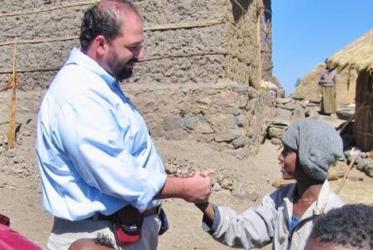Displaying 21 - 40 of 42
Assembly workshop looked toward ending AIDS epidemic by 2030
19 September 2022
Ukraine: Responding to humanitarian need
08 September 2022
Together in the Mission of God
Jubilee Reflections on the International Missionary Council
21 August 2022
Called to Transformation - Ecumenical Diakonia
09 June 2022
African church leaders train in leadership, diakonia and development
12 November 2021
Churches offer some relief in Kenya’s drought disaster
16 September 2021


















